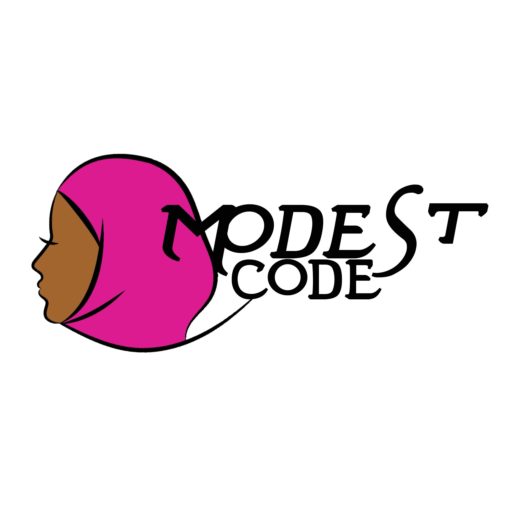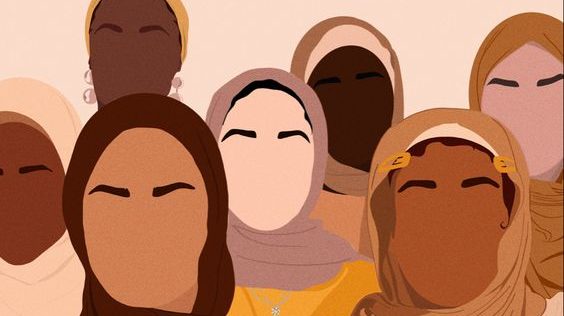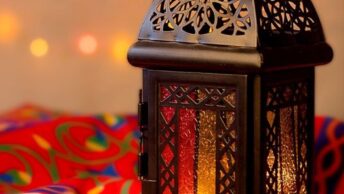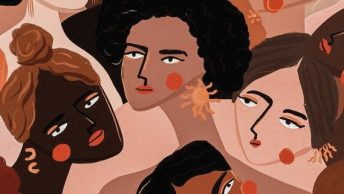Muslims are questioning representation following the mostly bad media portrayal we receive in the news, movies and on social media.
From Europe to Africa, from sports to medicine, Muslims, especially Muslim women in hijab face a lot of discrimination.
In 2017 in Nigeria, Amasa Firdaus was not called to the bar because she refused to take off her hijab. But she fought the system and won. She is currently serving the bar.
Unsurprisingly, a study published in July 2022 showed that in the Netherlands, 65% of non-hijab wearing women received a positive call back on their job applications compared to 35% of hijabis. In Germany, this ratio was 53% of unveiled Muslims as compared to 25% of veiled Muslim women.
Hijab discrimination is ever alive and thriving, even in Ghana where we like to think of ourselves as tolerant and welcoming.
In Ghana, Muslim nurses face harassment in a bid to wear their hijabs to work. Muslim students also have their share of experiences at school, where they are forced to attend church service. Recently, Muslim students at Wesley Girls High School, report authorities sanctioning their observance of fast while in school.
Conversations with several Muslimahs in the banking sector reveal their hijab ordeals. Front-end bank employees explain that they are made to feel like the hijab is a contagious disease. Somehow, the concept of a hijab does not seem to align with corporate Ghana’s idea of professionalism.
The effect of these restrictions, and let’s call it what it is, discrimination, is that Muslims and especially hijabis, begin to self- restrict. Hijabis begin to internalize these limitations and their concept of their skills and ability based on years of exclusion. They construct tiny boxes in their minds where they believe they fit, everything else is out of the question. In comes representation.
Why representation matters?
Many Muslims experience having to negotiate between some aspect of their faith and whatever space they hope to occupy. Muslim footballers like Paul Pogba, Sadio Mane and Noussair Mazraoui made headlines for refusing to take photos with a display alcohol. Similarly, Halima Aden has also shared her experiences in modeling.
Hijabis, as hypervisible Muslim people, who have chosen to live by a certain code of conduct experience discrimination and judgement. They often make hard choices involving faith and restrictions that come with ‘wearing our faith on our sleeves’.
To avoid confrontation regarding what constitutes proper hijab, many Muslim women in hijab avoid certain spaces. For some, that is self limiting, and would rather show up in spaces they want to be in regardless of other people’s opinions.
It is refreshing to see hijab wearing women taking space in areas they were made to feel they did not belong. This is equivalent to witnessing the first black person become president of the United States of America. It sends a clear message: You are allowed to take up this space and be you while at it.
But is there a line to draw?
Some of the spaces we want representation are not prepared to accommodate us. Sometimes, they are totally haraam(prohibited) for us to be in due to our religion’s etiquettes.
The changes it requires to make these spaces Muslim-friendly or ‘halal’, the measures that owners of these spaces need to put in place to ensure they are truly welcoming to Muslims, are often not measures people are willing to take. Seeking inclusion in such spaces, often times, comes at the expense of Islam.
Recently, a Muslim woman won, for the very first time, the Miss Malaika Beauty Pageant with the title “Emerald Queen”. Her victory is making waves, many seem excited, Muslims and non-Muslims alike.
But at what cost?
A few weeks prior to this victory, our Muslim crown bearer posed on a Club Beer banner, holding a glass of what looks like beer participating in a photoshoot. In a video uploaded to social media, she explains that the exercise was a challenge but she got creative by finding a drink with the same color. Can we demand inclusion here or do we take the “L” as we say it? Clearly, a pyrrhic victory.
As Muslims, especially muslim women where do we draw the line when it comes to the whole conversation around representation? What do we even understand by representation? Must there be the Muslim version of everything? These are some of the critical questions we need to ask ourselves as Muslimahs/Muslims.
Islam is a religion that has its own ethics and principles. The moment we accept this deen, we need to understand that we don’t get to live our lives like every one else. Allah dictates our purpose and how to live our lives.
As Muslims knowing that we cannot be and so do not need to be in every space is the beginning of true wisdom/liberation.
While it may be burdensome, being in non-Muslim spaces makes us ambassadors of Islam. For non-Muslims you are the ideal Muslim woman and you become the lens with which they see and judge other Muslim women. Typically at the work spaces, there are Muslim women who do not veil while there are others who are consistent with their hijabs. Those consistent always have to explain why they wear their hijabs because the other muslim women in the same organization do not.
It is not appropriate to question women’s clothing choices, irrespective of what you believe they should appear as because of their religion.
Many Muslim women in their quest to be firm and fight for inclusion into traditionally non-inclusive spaces end up compromising on the hijab. Some get into these spaces wearing their hijabs properly but eventually alter or completely take it off due to the pressure they experience. This trend these past years questions the extent of the representation we are looking for as an Ummah. Is it worth it? Is giving up our true identity as Muslimahs’ to fit into a world worth it?
The truth is uncomfortable but we need to admit and also accept that truly, most spaces are not for us. There are other spaces we can show up as ourselves. These spaces will not need us to squeeze ourselves and our deen to fit into “accepted” societal pressures.
Besides, there’s no ambiguity in the Quran when it comes to the clothing and conduct of Muslims. However, marketization and social media is increasing the pressure on mainstream beauty and clothing standards. Understandably, Muslim women experience these pressures. This explains the constant need to “Islamize” some secular activities to get more Muslim women participation. But we ask again, to what extent?
There is no denying that we need Muslim representation. But should these representations make us compromise on the basic principles of our deen? The Quran explicitly prohibits alcohol and everything relating to its sales and promotion.
“O ye who believe! Intoxicants and gambling, (dedication of) stones, and (divination by) arrows, are an abomination,- of Satan’s handwork: eschew such (abomination), that ye may prosper.”
Surah Al-Maaidah verse 90.
Therefore it is not befitting for a Muslim to represent alcoholic and gambling brands for whatever quest.
As visible as Muslim women are, there is the need to pay attention to representation that demands us to rip off the basis of our deen.
As previously stated, it is not binding on us as Muslims especially Muslim women to be in every space. If it needs us compromising on the very essence of our deen, then it is not worth pursuing.
What should we do?
It is critical that we consistently remember what our focus in life really is. This dunya with its beauty and hustle is not the focus. Our important focus should be our akhira. And striving towards dawah or spreading Islam from the acceptable/halal ways.
Our world now is more interested in exploiting the whole Muslim representation to push their own agenda. Inclusion that expects us to be more accommodating of things our religion is totally against. Many brands are using Muslim women as tokens for profit making profit and stating that they are providing “opportunities”.
Nafisa Bakkar captures it succinctly in her essay in “It’s not about the Burqa” by Mariam Khan.
“In order for our faith to stay intact in the public and private spheres, we must have guidelines on representation, but where do they come from? Of course we can say our guidelines should come from Islam, the Quran, the sunnah and scholars, but with such diversity of faith and practice, who gets to draw up the blueprint? – in fact – do not need to be represented in every space and in every moment? A part of me feels like a Muslim conservative Grinch for wondering if I really want to see Muslim women represented in pop music videos…”
Representation for us as Muslims especially Ghanaian Muslims is crucial. Importantly, let’s fight for our basic rights of a total freedom of religion at work and school.
Similarly, when the discourse of representation comes us, we need to ask ourselves critical questions.
Is it worth it? To what extent? And how and where do we draw the line between representation and abandoning our faith?




